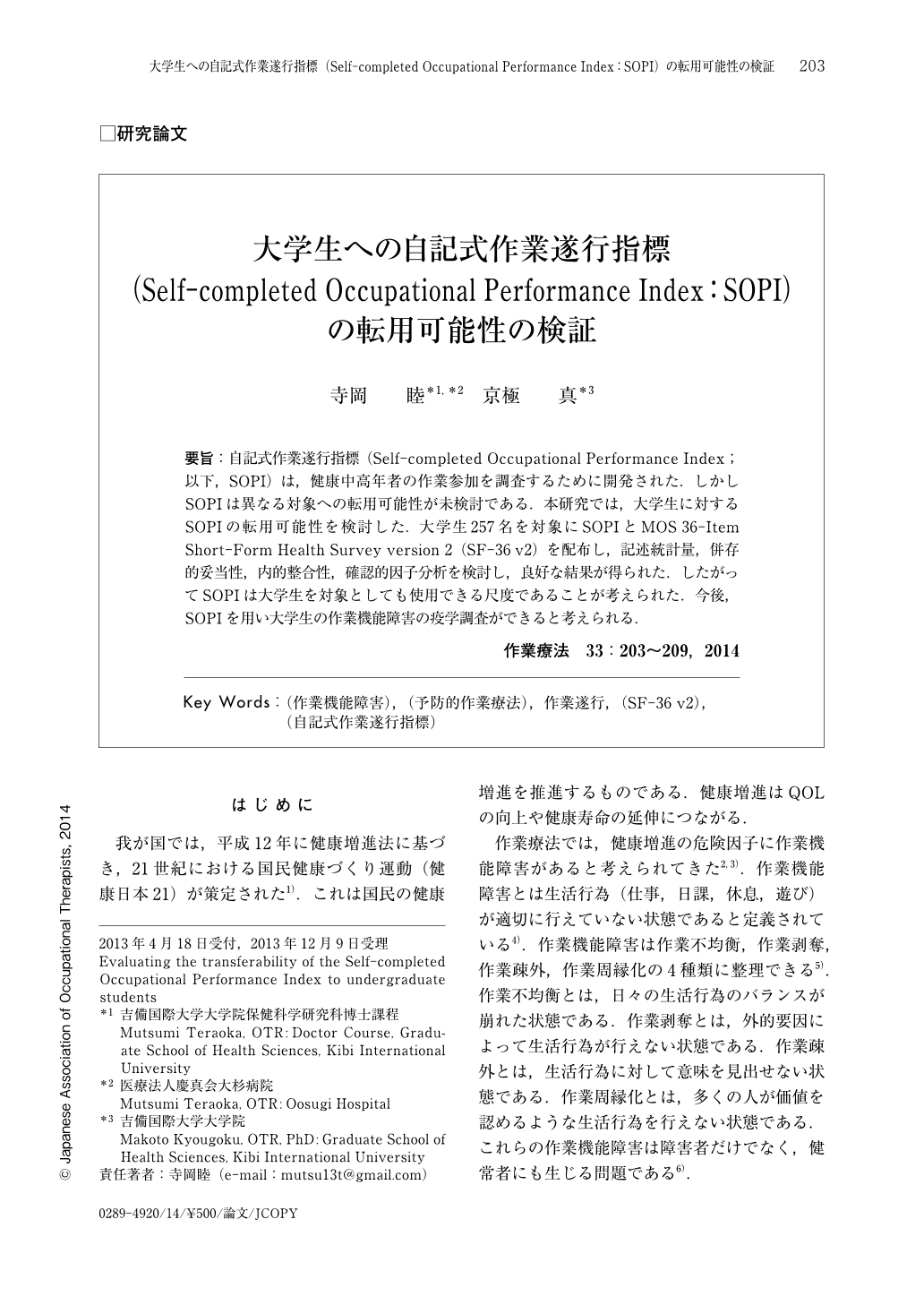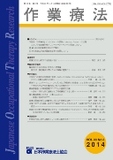Japanese
English
- 販売していません
- Abstract 文献概要
- 1ページ目 Look Inside
- 参考文献 Reference
- サイト内被引用 Cited by
要旨:自記式作業遂行指標(Self-completed Occupational Performance Index;以下,SOPI)は,健康中高年者の作業参加を調査するために開発された.しかしSOPIは異なる対象への転用可能性が未検討である.本研究では,大学生に対するSOPIの転用可能性を検討した.大学生257名を対象にSOPIとMOS 36-Item Short-Form Health Survey version 2(SF-36v2)を配布し,記述統計量,併存的妥当性,内的整合性,確認的因子分析を検討し,良好な結果が得られた.したがってSOPIは大学生を対象としても使用できる尺度であることが考えられた.今後,SOPIを用い大学生の作業機能障害の疫学調査ができると考えられる.
The Self-completed Occupational Performance Index (SOPI) was developed to evaluate the elderly with regard to occupational performance. However, SOPI is not used to assess other groups. The aim of this study was to investigate the reliability and validity of the SOPI to a sample of undergraduate students. A total of 257 students were recruited from two departments. The concurrent validity of the scale was demonstrated by the relationship between the SOPI and short form 36 (SF-36 v2). The reliability of the scale was assessed by investigating its internal consistency and through confirmation of factor analysis. The concurrent validity was good, as evidenced by the significant positive correlation between the SOPI and the SF-36 (Spearman's rho: 0.212-0.399). The internal consistency obtained was very high, with a Cronbach's alpha of 0.899. The confirmation of the factor analysis of the SOPI indicated a good fit with the 3-factors (leisure, self-care, and productivity). The outcome of this study was positive, indicating that SOPI can be used as an assessment tool for epidemiology research on undergraduate students with occupational dysfunction.

Copyright © 2014, Japanese Association of Occupational Therapists. All rights reserved.


